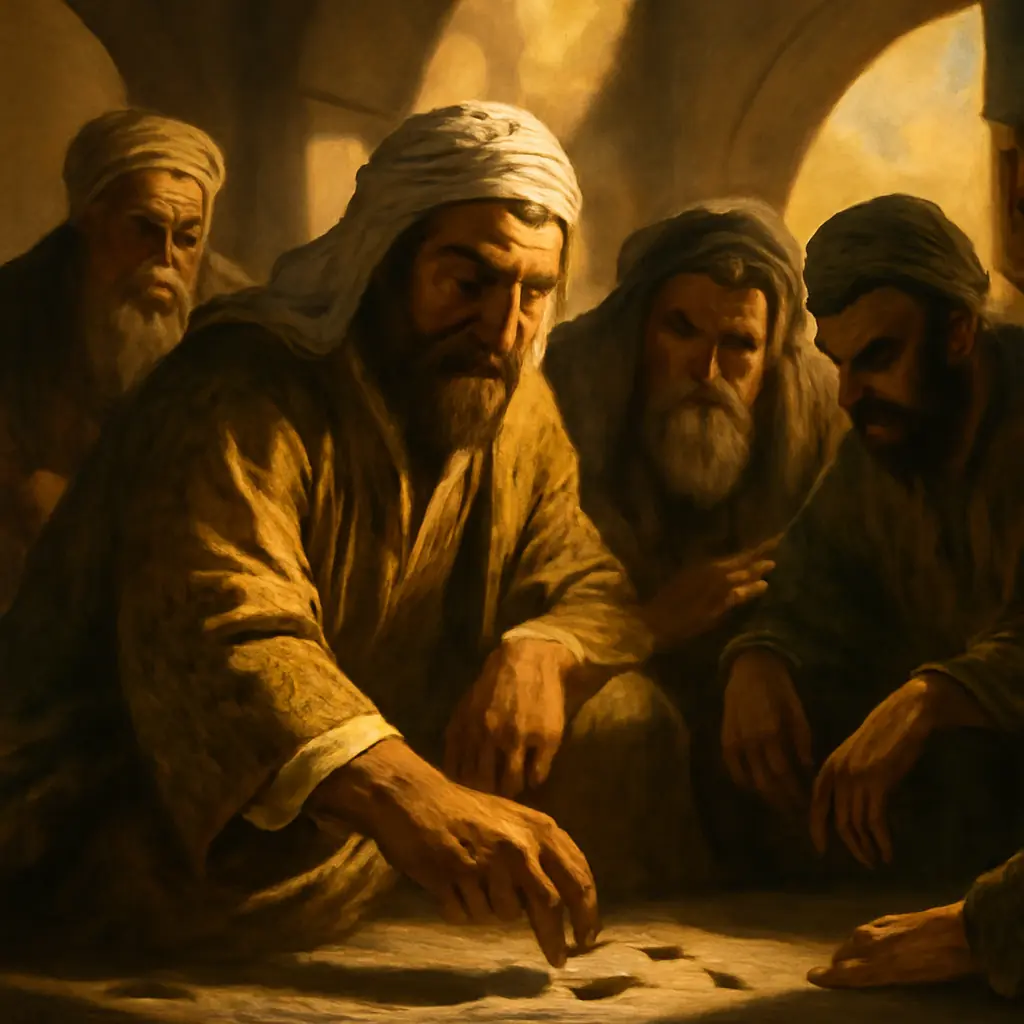
Is Blackjack a Sin? Exploring the Morality and Ethics of Gambling
Introduction
Picture this: You’re on vacation, the lights of the casino beckon, and the blackjack table seems like a fun way to spend an evening. But a nagging voice whispers in the back of your mind – is playing blackjack a sin? This question, like a pair of pocket aces, can be both exciting and a little unsettling. The truth is, the answer isn’t a simple yes or no. Opinions on gambling, and specifically blackjack, are as diverse as the people playing the game.
For some, even the thought of risking money is morally questionable. Others view it as harmless entertainment, a bit of calculated risk-taking no different than investing in the stock market (albeit a bit faster-paced!). Growing up, for example, the mere mention of “casino” was enough to elicit a stern lecture from a very serious aunt. It was years before I could even approach a slot machine without feeling a twinge of guilt!
This article isn’t about preaching or condemning. Instead, it’s about exploring the different viewpoints surrounding blackjack and its potential classification as a sin. We’ll delve into religious arguments, examine the ethics of gambling, and consider the potential consequences – both financial and personal. The aim? To provide you with the information you need to make your own informed decision, whether you’re holding a winning hand or still deciding whether to sit down at the table.
Defining Sin and Morality
The concepts of sin and morality are complex, often intertwined, yet distinct in their origins and implications. Sin, primarily a religious term, denotes an offense against a divine law or moral code. Its definition varies greatly depending on religious tradition, ranging from specific acts forbidden by scriptures to broader concepts of disobedience or straying from a divinely ordained path. Theology often grapples with the nature of sin, exploring its roots in human fallibility and its consequences for the individual and the collective.
Morality, on the other hand, encompasses a broader set of principles concerning right and wrong conduct. While often informed by religious beliefs, morality can also stem from philosophical reasoning, cultural norms, and personal values. The debate between subjective and objective morality is ongoing; some argue that moral principles are relative to individual perspectives or cultural contexts, while others maintain that universal moral truths exist, independent of human opinion.
Ethics provides a framework for analyzing and applying moral principles in various situations. Personal values, shaped by individual experiences and beliefs, also exert a powerful influence on one’s moral compass. The interplay between these factors creates a complex landscape, where the lines between sin and morality can become blurred, and ethical decision-making requires careful consideration of diverse perspectives.
Blackjack: Game of Skill or Chance?
Blackjack exists in a fascinating grey area; it’s neither purely a game of skill nor purely one of chance. A degree of chance is undeniably present. The cards dealt are random, and no amount of strategy can guarantee a specific outcome in a single hand. However, astute players understand that blackjack offers opportunities to significantly influence the odds. This influence comes from applying strategic decisions based on probability.
The house edge, a statistical advantage the casino holds, works against players over the long run. However, by employing a “basic strategy”—a mathematically optimal way to play each hand based on the player’s hand and the dealer’s visible card—players can minimize this edge. Basic strategy charts are readily available and widely used. Card counting, a more advanced technique, involves tracking the ratio of high to low cards remaining in the deck, allowing players to adjust their bets and playing decisions to capitalize on favorable situations. While not illegal, casinos frown upon card counting and may ask suspected counters to leave.
Ultimately, success at blackjack hinges on understanding and managing the interplay between skill and chance. Skillful play improves the odds and reduces the house edge, but chance always introduces an element of unpredictability.
Biblical Perspectives on Gambling
The Bible’s stance on gambling is a complex topic, prompting diverse interpretations within Christianity and other faiths. While some believe the scripture explicitly forbids gambling, a closer examination reveals a more nuanced perspective. There isn’t a direct, unequivocal prohibition against gambling in the Bible.
Passages often cited against gambling often revolve around the dangers of greed and the love of money. Verses caution against the pursuit of wealth at all costs, highlighting its potential to lead individuals astray. However, critics point out that these verses address the improper attitude toward money rather than gambling itself.
Counter-arguments include examples of risk-taking and games of chance within the biblical narrative. Casting lots, for instance, was used to make important decisions, suggesting that chance wasn’t always viewed negatively. The concept of Providence, where outcomes are believed to be guided by a higher power, also plays into some interpretations, suggesting that even in games of chance, there may be a divine hand at work.
Ultimately, understanding biblical perspectives on gambling requires individual study, prayer, and discernment. Believers are encouraged to seek guidance from trusted spiritual mentors and to develop a mature understanding of prudence. The Bible provides principles to guide ethical decision-making, leaving room for individual conscience while considering the potential harms and benefits associated with gambling.
Potential Harms of Blackjack (and Gambling in General)
While blackjack can be an engaging pastime, it’s crucial to acknowledge the potential downsides associated with gambling, both with blackjack specifically and gambling in general. Understanding these risks is the first step in enjoying blackjack responsibly.
One of the most serious consequences is gambling addiction, often referred to as problem gambling. It’s a behavioral addiction characterized by an uncontrollable urge to gamble, despite negative consequences. Studies suggest that a significant percentage of the population struggles with some form of gambling addiction. This can manifest as chasing losses, neglecting responsibilities, and an inability to stop, even when faced with mounting debt.
The financial implications of problem gambling can be devastating. Individuals may find themselves accumulating substantial debt, losing savings, and even facing bankruptcy. The stress and anxiety associated with financial ruin can further exacerbate the addiction, creating a vicious cycle.
Beyond the financial realm, gambling addiction can severely strain relationships. The secrecy, deception, and financial instability associated with the addiction can erode trust and lead to conflict within families and partnerships. In some cases, relationships may dissolve entirely.
It’s important to recognize the signs of problem gambling, both in oneself and in others. Some indicators include gambling with increasing amounts of money, lying about gambling habits, feeling restless or irritable when trying to cut down on gambling, and using gambling as an escape from problems.
If you or someone you know is struggling with problem gambling, resources are available. Many organizations offer confidential helplines, counseling services, and support groups to help individuals overcome addiction and rebuild their lives. Recognizing the potential harms and seeking help when needed are essential for responsible gambling.
The Argument for Moderation and Personal Responsibility
Blackjack, like many forms of entertainment, doesn’t have to lead to negative consequences. It can be an enjoyable pastime when approached with moderation and a sense of personal responsibility. The key lies in understanding the difference between recreational engagement and problematic behavior.
Responsible gambling starts with self-awareness and self-control. It’s about setting clear limits before even placing the first bet. This includes establishing a strict budget and adhering to it. Decide on a fixed amount you’re willing to spend – and, crucially, willing to lose – without impacting your financial stability. Once that limit is reached, it’s time to stop, regardless of whether you’re winning or losing.
Time management is equally important. Set a specific time limit for your blackjack sessions and stick to it. Avoid chasing losses or getting caught up in the excitement to the point where you neglect other responsibilities. View blackjack as a social activity to be enjoyed with friends, rather than a desperate attempt to generate income. This shift in perspective can help maintain a healthy relationship with the game.
Ultimately, responsible gambling is about making conscious choices and staying in control. It’s about recognizing the potential risks and taking proactive steps to mitigate them. When blackjack is approached with moderation, budgeting, and self-control, it can be a source of entertainment without spiraling into problem gambling.
Other Religious Views
Beyond Christianity, diverse faiths offer unique perspectives on gambling. These views often stem from religious texts, traditions, and interpretations of ethical principles. Examining these differing standpoints reveals a complex tapestry of thought on games of chance.
Islam Gambling
Islam strictly prohibits gambling, considering it a societal ill that can lead to addiction, financial ruin, and discord. Games of chance are seen as a form of unearned income and a distraction from religious duties and productive activities. This prohibition extends to various forms of wagering and speculative activities.
Judaism Gambling
Judaism approaches gambling with more nuance. While not explicitly forbidden, it’s generally discouraged. Jewish law emphasizes honest labor and earning a living through productive means. Gambling is often viewed negatively due to its potential for dishonesty, addiction, and the exploitation of others. However, some forms of gambling, particularly those involving skill, may be viewed with less disapproval.
Hinduism Gambling
Hinduism presents a complex and varied perspective. Ancient texts like the Rigveda contain references to gambling, both positive and negative. While gambling is recognized as a source of entertainment and excitement, it’s also cautioned against due to its potential for addiction, loss of wealth, and social disruption. The emphasis is often placed on moderation, self-control, and responsible behavior.
Buddhism Gambling
Buddhism generally discourages gambling due to its association with craving, attachment, and delusion. The pursuit of wealth through gambling is seen as a distraction from the path to enlightenment. Buddhist teachings emphasize mindfulness, contentment, and detachment from material possessions. Gambling can lead to suffering and hinder spiritual progress.
These are just a few examples, and interpretations within each religion can vary. However, they highlight the diverse ways in which different faiths grapple with the moral and ethical implications of gambling.
Practical Considerations and Personal Conviction
Ultimately, the decision of whether or not to engage in blackjack is a deeply personal one. It’s a choice that should be made with careful consideration of your own personal values, beliefs, and individual circumstances. Before diving into the world of cards and bets, it’s wise to pause and engage in some honest self-reflection.
Ask yourself: Does playing blackjack align with your core principles? Does it resonate with your conscience? Cultivating discernment is key; take time to weigh the potential risks against the perceived rewards, not just financially, but emotionally and psychologically. Remember, responsible gambling is paramount for those who choose to participate. Approach the game with a clear head, a defined budget, and the self-awareness to walk away when necessary.
Conclusion
Navigating the question of whether playing blackjack is a sin involves a blend of religious teachings, personal beliefs, and ethical considerations. There’s no universal decree; some view it as harmless entertainment, while others see it as a potential gateway to harmful behaviors or a violation of religious principles.
Ultimately, the choice rests with the individual. Consider the potential impact on one’s life and those around them. Researching different perspectives and reflecting on personal values allows for an informed and ethical decision-making process. By understanding the arguments and aligning actions with one’s conscience ensures a sound decision.



